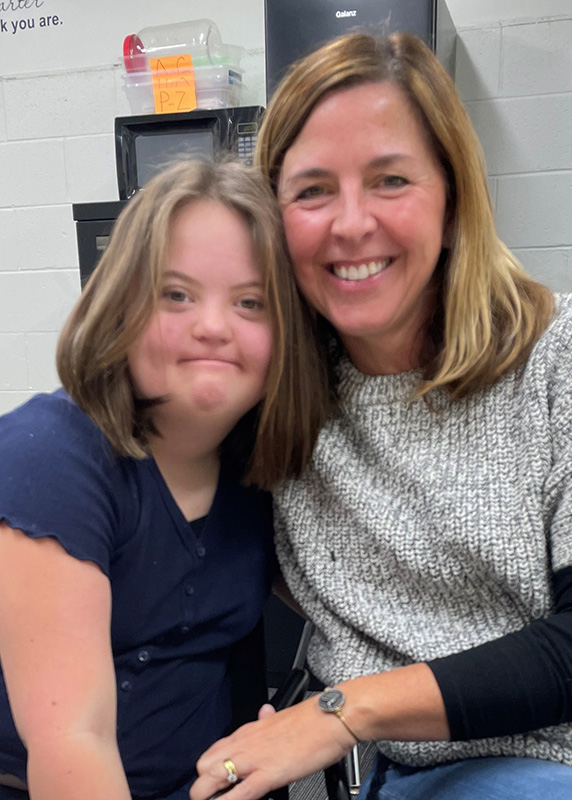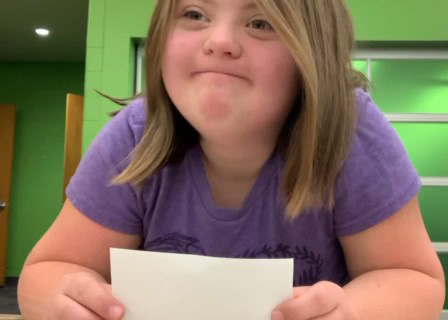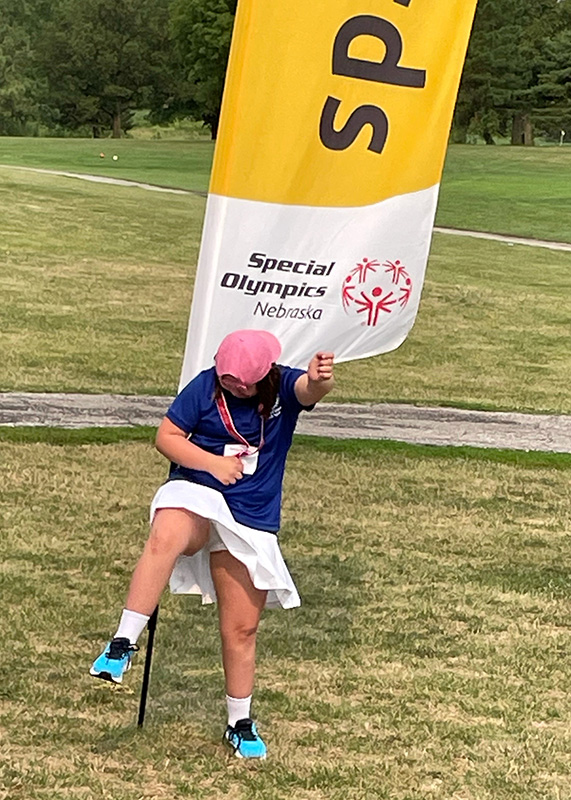 Ellie and her Mom, Stacey
Ellie and her Mom, StaceyEllie's mom, Stacey, wants to learn ways to make sure her 13-year-old daughter receives the best opportunities to have a meaningful life. “As our daughter, Ellie gets older we hope she understands that she has a say in how she lives her life and want to provide her with opportunities, like Person-Centered Planning, where she can see that she can make choices about goals and what she feels is meaningful in her life."
Participating in the four-part training series of Person-Centered Planning (PCP) was Stacey's first experience with anything like it. She continues to attend advanced trainings. She feels she is a better parent because of the experience. Stacey works at Munroe-Meyer Institute, as the family trainee for Leadership Education in Neurodevelopmental and Related Disorders (LEND). As such, she wants to share what she is learning about PCP with other children and families. Her excitement is apparent as she speaks. Her smile reaches her eyes!
Stacey is enthusiastic about the process of creating “a living, breathing document" and shares with her family, friends, and Ellie's teachers. She now has three quotes hanging on her office wall: "Nothing About Us without Us," "allow individuals the dignity of risk," and "presume competence." These are the foundation of Stacey's discussions about PCP.
 Ellie
Ellie Ellie is “funny and super-smart and kind and a little sassy…she takes a while to warm up to people.…she wants to make sure this is a person that is safe and that she feels comfortable, but once she gets to know people she just opens up and…she's a funny, funny kid." Ellie participates in choir and is involved in sports, including tennis and golf.
Stacey spoke with Ellie's special education teacher and they will use PCP for Ellie's next Individualized Educational Program (IEP) meeting. Ellie's parents talked with her about her IEP and how it provides her teachers a plan to help her succeed in school. Ellie's special education teacher also talked with her about leading her meeting and setting her own goals.
Although Ellie is uncomfortable speaking in a meeting, her teacher recognized Ellie does well using video. They wrote notecards and Ellie soloed in the video. Stacey points out this allows Ellie “the dignity of risk and [is] presuming competence." Communicating her own ideas and interests via video allows Ellie's “personality to shine!" Ellie finished her meeting answering questions and asking some of her own.
Ellie's IEP includes social, academic, and independence skill-building. Since Ellie's school is a large one, with almost a thousand students, she tends to keep her head down and focus on where she is going. Ellie wants to be able to talk to people more easily. The day after her meeting, Ellie had made a list of ways she can respond to other students as they pass in the hall.
 Ellie at her Meeting
Ellie at her MeetingEllie uses self-talk, saying “I can do this" when she feels unsure of herself. She is working on being able to use an analogue clock and figure out things like what time she must start getting ready for school. Her goals include math topics, identifying money, and other life skills. Each goal is clearly written and measurable.
Ellie's IEP meeting boosted her confidence and she is very proud of being involved in her own meeting. This was the first IEP meeting Ellie had ever attended! It allowed Ellie's team to see her as both a student and a person with interests and dreams.
 Ellie Winning Golf
Ellie Winning GolfStacey finds the simple PCP strategies and real-world experiences very helpful. Each training session builds on the previous ones. Stacey was impressed with the Children and Families session with Kathy and Alexa Brill, and now understands the hard work it takes to break down barriers. Alexa lives the independent life of her choosing while reaching for her dreams. Stacey wants the same for Ellie.
“All the information has been useful...I appreciated the message of self-advocacy and the idea that people with disabilities can lead independent, enriched lives and have a meaningful place within their community. I hope that as a community, all people will begin to see every person as someone who is valued and important. A place where we live in the framework of us/we rather than they/other. Person-Centered Planning and the trainings being held work to help make this framework attainable."